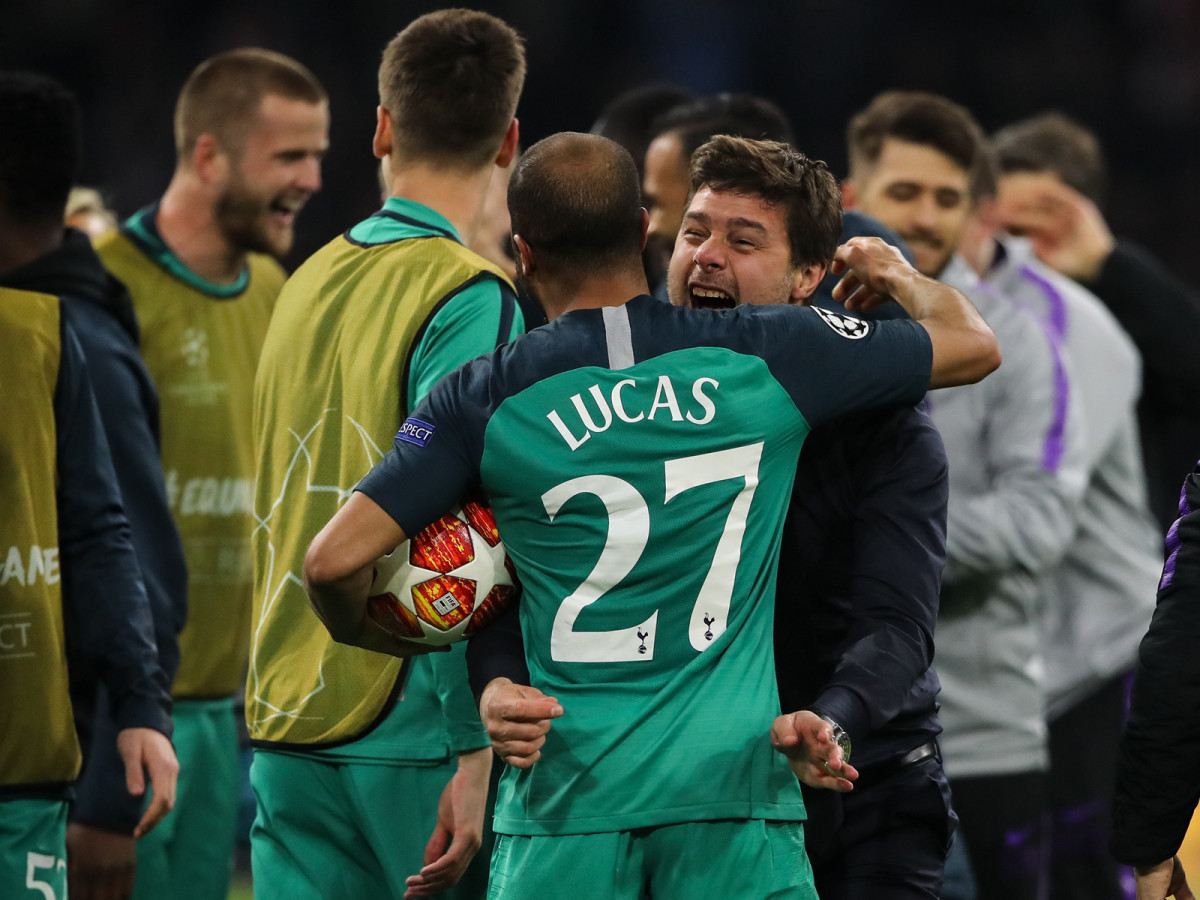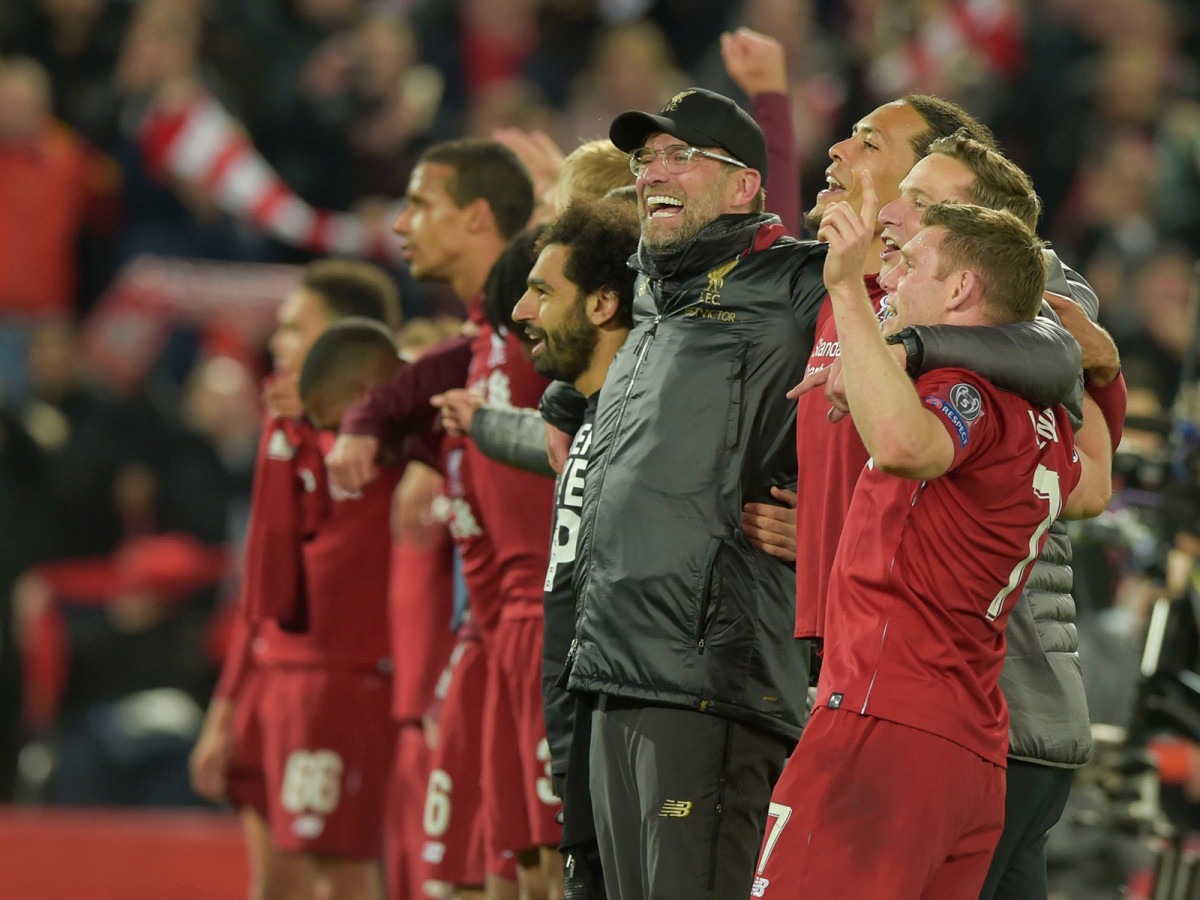Klopp, Pochettino Proof That Trophy Chances Come With Commitment to Process

One of the strangest criticisms you hear of a football manager is that he has yet to win a trophy. Trophies are important, of course, and there’s also a depressing trend in modern football to define success by the balance sheet alone. It's as though finishing fourth in the Premier League and so qualifying for the Champions League and all its riches–or even avoiding relegation and staying in the Premier League–somehow outstrips winning the League Cup or FA Cup. But still, there are certain managers who have clearly made their clubs better without yet winning silverware for them–and two of them will meet in the Champions League final.
The progression of Jurgen Klopp's Liverpool and Mauricio Pochettino's Tottenham to Saturday’s final in Madrid is telling in a number of ways. Tottenham has, without question, been fortunate, and not just because it got through against Manchester City and Ajax on the away goals rule. In the quarterfinal, Man City missed a penalty and had a late goal ruled out by VAR for a marginal offside decision (and even though Sergio Aguero was narrowly offside, he only became so when Christian Eriksen’s panicky backpass flicked off Bernardo Silva). The winner, meanwhile, was bundled in, after a brush off the forearm, by Fernando Llorente’s hip.
Scoring three second-half goals in the second leg of the semifinal, the last of them in the sixth minute of injury time–and after Ajax had hit the post–similarly, seems an unreliable method of securing progress. And that’s without even mentioning the fact that Tottenham had one point after three group games and would have gone out but for Lucas Moura’s 85th-minute equalizer in the final group game away to a Barcelona side that was already through and so rested a number of key players.

But that’s the nature of cup competitions, and Tottenham can, with some justification, point to the misfortune that saw it go out against Juventus in a tie it had dominated last season, or the curious defeat to Manchester United in the 2017-18 FA Cup semifinal. Progress in knockout competitions does not always go to the deserving side, and the luck that has gone against Tottenham in previous seasons has largely gone in its favor this time around.
Pochettino, has taken a side that before his management had only even played two seasons in the European Cup/Champions League and, with next to no transfer spending, he's taken it into the Champions League three seasons in a row. To quibble that he has not yet matched Juande Ramos’s achievement of winning the League Cup is absurd. Even if Tottenham loses on Saturday, Pochettino will have done more for the club than any manager since Bill Nicholson.
Klopp, similarly, is dogged by the criticism of a lack of silverware, even though he won two Bundesliga titles and a German Cup with Borussia Dortmund. Again, the issue is quickly crystalized: who would Liverpool fans rather have in charge now, Klopp or the last manager to win a trophy with the club, Kenny Dalglish? The answer, you suspect, would be unanimous.
The other charge leveled against Klopp is that he has a habit of losing in finals. He has runner-up medals from two Champions Leagues–including one last season–a Europa League, two German Cups and a League Cup. That is perhaps more relevant, but even that statistic is a little misleading. Only against Wolfsburg in the German Cup final of 2015 was Klopp’s side a clear favorite. In four of the others, Klopp was managing an obvious underdog, while against Sevilla in the Europa League final in 2016, he had been in charge of his side for just seven months. In the majority of cases, getting to the final was a great achievement rather than losing in those finals being any great shame.

Like Spurs, Liverpool could very easily not have reached the final this year. However unfortunate it may have been to lose 3-0 away to Barcelona, it’s rare that teams will come back from that, even against a Barcelona side this flimsy.
It’s coincidence, of course, that both Liverpool and Tottenham have reached the final in the same year, but it is a fitting one. This is what happens when you have a plan, when you give a manager time. Pochettino arrived at Spurs in 2014, Klopp at Liverpool a year later. Both clubs have had stability. They have built coherent squads–Pochettino despite limited resources–and instilled their ideas. The contrast with, say, Manchester United, and its weirdly imbalanced squad, patched together for a medley of managers with no clear direction, is striking.
Those ideas, moreover, are at the forefront of the modern game: a hard-pressing, high-tempo style that combines the pace and aggression of the traditional English game with technical virtuosity and a tactical mastery rooted in analytics and thorough research.
If there is a secret to their success it is just that: if you have a sensible long-term approach, a manager with a clear, modern vision and the courage to take a long-term view, the trophies will eventually come. For either Klopp or Pochettino's side, that moment will come Saturday.
